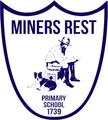Teaching and Learning

MRPS Homework Policy
Rationale:
- Homework benefits students by complementing classroom learning, fostering good study habits and providing an opportunity for students to be responsible for their own learning.
Aims:
- To support and extend classroom learning.
- To develop positive study habits.
- To develop a responsibility for self-learning.
Implementation:
- The school’s homework policy will be made available to staff and parents
- The school’s homework policy will be discussed at Student-led Conferences in Term One
- Classroom teachers will set homework appropriate to each child’s skill level and age
- Homework activities should be interesting, challenging and where appropriate, open-ended
- Each set task must be purposeful, meaningful and relevant to the current classroom curriculum
- All homework activities must be assessed with feedback and support provided by teachers
Early Years (Foundation – Year 2) – 5-10 minutes per night recommended
Homework will consist mainly of:
- Reading to, with and by parents.
- Nightly reading recorded in reading diaries.
- Simple extension tasks associated with classroom activities, e.g. word work tasks
- Gathering of additional information or materials, e.g. Show and Tell
- From time to time, some additional tasks or information collecting activities may be set by the class teacher. The involvement and support of parents is vital at this stage. Reading to your child, storytelling or games e.g.: “I spy” help to develop vocabulary and consolidate understanding.
Middle Years (Years 3– 4) – 10-20 minutes per night recommended
Homework will consist mainly of:
- Independent reading on a daily basis
- Tasks such as continuation of classroom work, projects/assignments and research.
- It is acceptable for teachers to assign unfinished classroom activities as additional homework tasks.
Senior Years (Years 5– 6) – 20-30 minutes per night recommended
Homework will consist mainly of:
- Independent reading on a daily basis
- Tasks such as continuation of classroom work, projects/assignments and research.
- It is acceptable for teachers to assign unfinished classroom activities as additional homework tasks.
Role of the Teacher:
- Share homework expectations with families at the beginning of each year
- Provide clear expectations about the homework given
- Set relevant and meaningful tasks that are related to classroom learning
- Monitor student completion of their learning
- Provide feedback to the students
- Determine tasks, considering the student’s ability, home circumstances and commitments
- Specialist teachers may liaise with the classroom teacher to have children finish specific tasks where appropriate
- Encourage students to read in the holidays
Role of the Students:
- Students need to make sure they take home everything they need
- Students need to manage their time so there is no panic when homework is due
- Students will be expected to complete their own homework and, if there is a difficulty, they need to advise the teacher
Role of Parents / Guardians:
- Notify the teacher if there is any difficulty with the tasks set
- Listen to students read and ask questions about understanding
- Parents are asked to sign their child’s Reading Diary (F-2)
- Parents are asked to sign students work (3-6) and Reading Diary in Years 4-6
- Parents are invited to provide feedback to their child by writing a message on the homework
- Set an environment and routine at home that fits their family
- Monitor disruptions
Evaluation:
- This policy will be reviewed as part of the school’s three-year review cycle.


